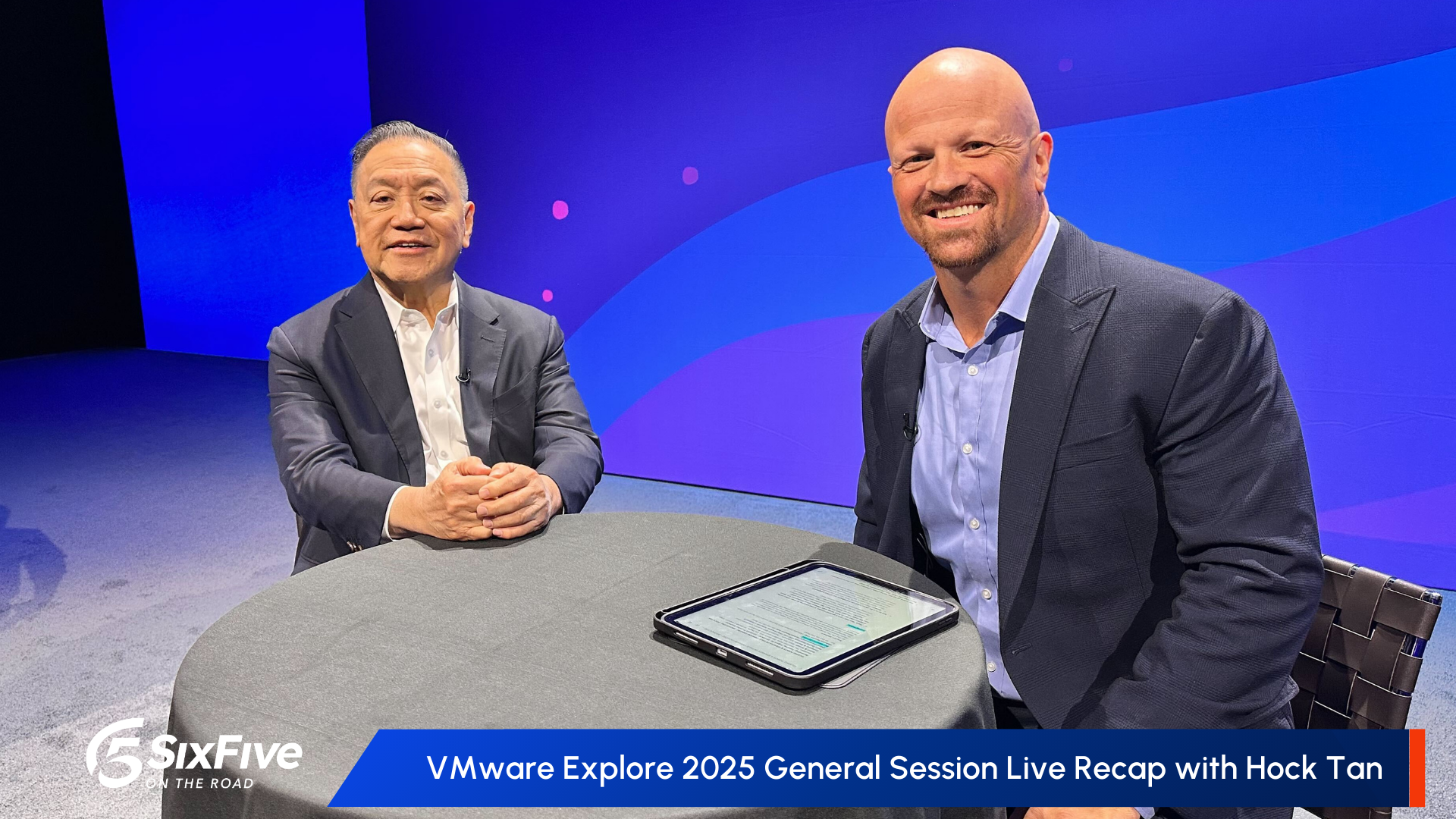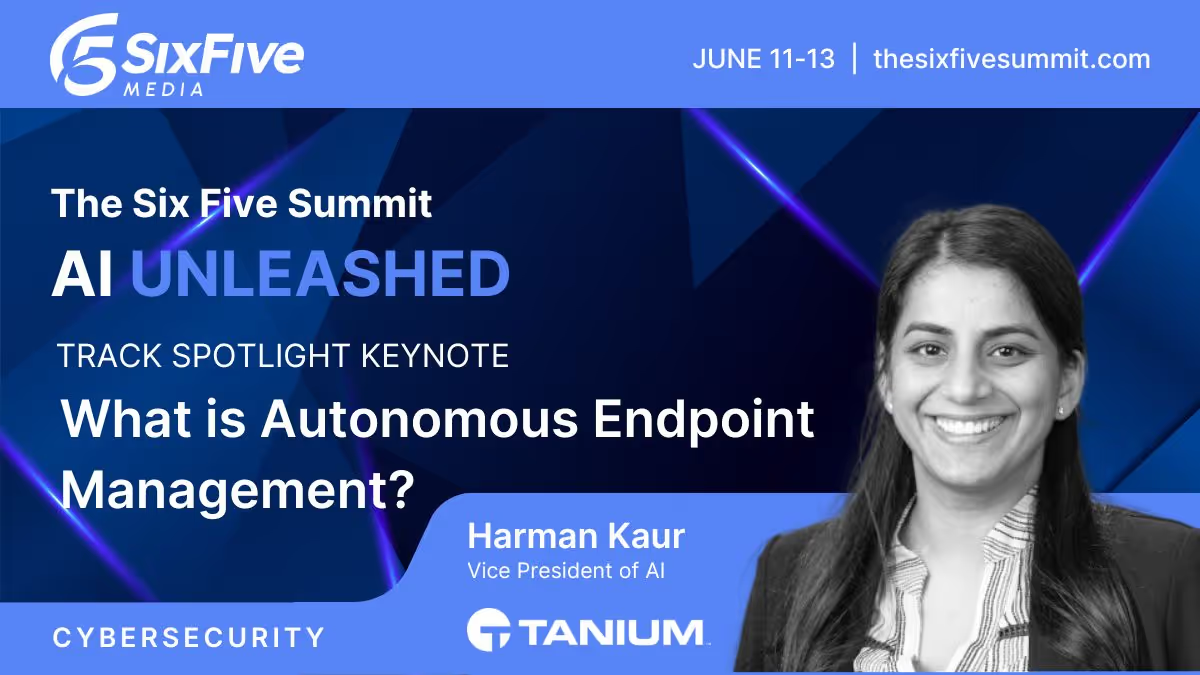Rethinking the Cloud for AI
As AI demand explodes, enterprises require purpose-built cloud infrastructure to stay ahead. See how Nebius, NVIDIA GPUs, and decades of deep-tech engineering expertise are building next-gen infrastructure for AI at scale.
Rethinking the Cloud for AI: Inside the Rise of Nebius and AI-Native Platforms
Author: Six Five Media
Existing forecasts confirm that the Data Intelligence, Analytics, and Infrastructure (DIAI) market is projected to soar from $409.3 billion in 2024 to $876.6 billion by 2029, achieving a strong 16.5% CAGR, driven by AI-native architectures and use cases.
Despite this growth, traditional hyperscalers face mounting challenges: GPU shortages, rising costs, and mounting infrastructure strain—factors that highlight the pressing need for AI-first platforms designed for scale.
The global public cloud services market is projected to grow 21.5% in 2025 to $723 billion, underscoring the sizeable market opportunity of rethinking cloud for AI. 71% of decision-makers expect fundamental disruption or widespread transformation from generative AI in 2025, up from 56% in 2024, marking a pivotal moment in enterprise AI adoption strategies. This explosive growth creates an opening for specialized platforms built specifically for AI. Moreover, ongoing GPU supply constraints threaten enterprise AI rollouts, emphasizing the need for dedicated infrastructure that can guarantee access to critical computing resources.
Enter Nebius, a purpose-built AI cloud platform that leverages the company’s engineering-led approach and direct access to NVIDIA's latest GPUs. Companies like Shopify are already betting on AI-native solutions that deliver the performance and scalability their production workloads demand. The future of AI cloud isn't just about more computing power—it's about smarter, more sustainable infrastructure designed from the ground up for artificial intelligence.
Where the Future of AI Cloud Is Headed
The AI infrastructure landscape is transforming rapidly. The global artificial intelligence market is valued at $391 billion in 2025, and generative AI alone could drive a trillion dollars in enterprise market value by 2030. This growth forces Infrastructure and Operations teams to rethink their approach to cloud computing.
Traditional hyperscalers built their cloud platforms for general-purpose computing needs, and later bolted on the specialized tools for AI. But AI workloads have unique requirements: massive parallel processing, high-bandwidth memory access, and specialized networking architectures. Generic cloud platforms simply can't deliver the performance that modern AI applications require. 89% of CIOs report leveraging AI for strategic improvements, with 71% re-evaluating their cloud workloads.
33% of organizations spend over $12 million annually on public cloud services in 2025, yet many still struggle with GPU availability, network bottlenecks, and suboptimal performance for their AI workloads.
The future of AI cloud lies in platforms that treat AI as a first-class citizen, not an afterthought.
Vertical Integration & Engineering DNA: The Nebius Approach
Nebius represents a new category of AI-native cloud platforms. The company's management team is spearheaded by founder and CEO Arkady Volozh, who launched Yandex in 1997 and grew it into a $31 billion tech leader.
This engineering heritage matters. The core team that founded Nebius brought decades of experience in creating sophisticated tech infrastructure at scale, going toe-to-toe with US and global big tech. That same attention to performance and scale now powers Nebius's AI infrastructure. Nebius deploys large-scale GPU clusters across Europe and the U.S., ensuring low-latency AI training and inference worldwide.
The platform features proprietary cloud software architecture and hardware designed in-house, including servers, racks, and data center design. This work is done in partnership with storage specialists to power next-gen AI through collaborations between Nebius & DDN, WEKA, and Vast. This vertical integration allows Nebius to optimize every layer of the stack for AI workloads, from silicon to software.
Direct access to NVIDIA's latest GPUs gives Nebius users a significant advantage. The company is one of the early adopters of NVIDIA's Blackwell Ultra platform, with tens of thousands of Blackwell and Blackwell Ultra GPUs coming online in 2025, dedicated clusters in its new U.S. data centers, and recognition as a Reference Platform NVIDIA Cloud Partner.
But having the hardware is only part of the equation. Nebius's engineering team knows how to extract maximum performance from these GPUs through optimized networking, storage, and orchestration.
Transitioning to AI-Native Infrastructure
Major enterprises are pivoting to AI-native platforms to meet production SLAs. For example, Shopify's infrastructure-first AI strategy exposes every piece of internal data via MCP servers, ensuring low-latency access and rapid feature rollouts.
Traditional hyperscalers face inherent limitations when serving AI workloads, excelling in compliance but trailing in AI-native service velocity. They prioritize broad compatibility over specialized performance. Their networking architectures weren't designed for the high-bandwidth, low-latency communication patterns that AI training requires. Their storage systems optimize for general-purpose access patterns, not the sequential reads and writes that characterize machine learning workflows.
Nebius defines a new generation of cloud infrastructure, engineered specifically for AI. It provides richer ecosystem capabilities than pure compute providers, while outperforming general-purpose hyperscalers on AI workloads. Beyond raw compute, Nebius delivers integrated tools such as AI Studio and managed Kubernetes
Hybrid cloud strategies are becoming the norm for AI workloads. For years, a majority of enterprises have been adopting hybrid cloud strategies to balance scalability and security. Organizations run sensitive training workloads on specialized platforms while using traditional clouds for less demanding tasks.
Redefining Sustainability for the AI Era
AI's environmental impact extends far beyond traditional data center metrics. Over the past decade, server power consumption has ballooned, resulting in single-rack power needs surging from ~15 kW to 100 kW or more. High-density, AI-fueled clusters can require thousands of servers—each drawing 10 kW or more—creating heat and power challenges far beyond what traditional air cooling can handle.
Liquid cooling—especially direct water cooling—can capture up to 98% of system heat, reducing data center power consumption by up to 40% and enabling more compute density per footprint. However, standard metrics like Power Usage Effectiveness (PUE) don't capture AI's full environmental footprint. Traditional metrics focus mainly on facility efficiency and not on the computational intensity of AI workloads or the lifecycle impacts.
Sustainable AI requires a holistic approach. This means considering the entire lifecycle: material extraction for GPU manufacturing, component production, data center construction, model training, inference serving, and eventual hardware retirement. At every stage of an AI system's lifecycle, resources are consumed.
AI-native platforms can optimize for sustainability in ways that general-purpose clouds cannot. They can design cooling systems specifically for GPU workloads, optimize power distribution for AI training patterns, and implement more efficient resource scheduling algorithms. Vertical integration allows platforms like Nebius to make sustainability decisions across the entire stack.
Expanding Horizons: AI & Data Analytics Trends
Real-time AI analytics is driving the next wave of infrastructure innovation. By the end of 2024, nearly half of enterprises had deployed generative AI, with strong uptake also in predictive and interpretive AI. As adoption deepens, organizations require tighter integration between AI infrastructure and existing systems - enabling faster data processing and stronger security.
The hybrid cloud model continues to dominate because it offers flexibility. Organizations can run training workloads on specialized AI platforms while using traditional clouds for data storage and application hosting. This approach optimizes both performance and cost.
Embrace the Future of AI Cloud
The future of AI cloud belongs to platforms built specifically for artificial intelligence. Generic hyperscalers served the market well during the early days of cloud computing, but AI demands specialized infrastructure that can deliver the performance, efficiency, and sustainability that modern applications require.
Purpose-built platforms like Nebius offer the vertical integration, engineering expertise, and AI-native design that enterprises need to compete in an AI-driven world. They provide direct access to cutting-edge hardware, optimized software stacks, and the operational excellence that comes from focusing exclusively on AI workloads.
The companies that will thrive in the AI era are those that recognize this shift early and invest in infrastructure designed for the future. To secure your organization's spot in the future of AI cloud, schedule a Nebius demo today.
MORE VIDEOS
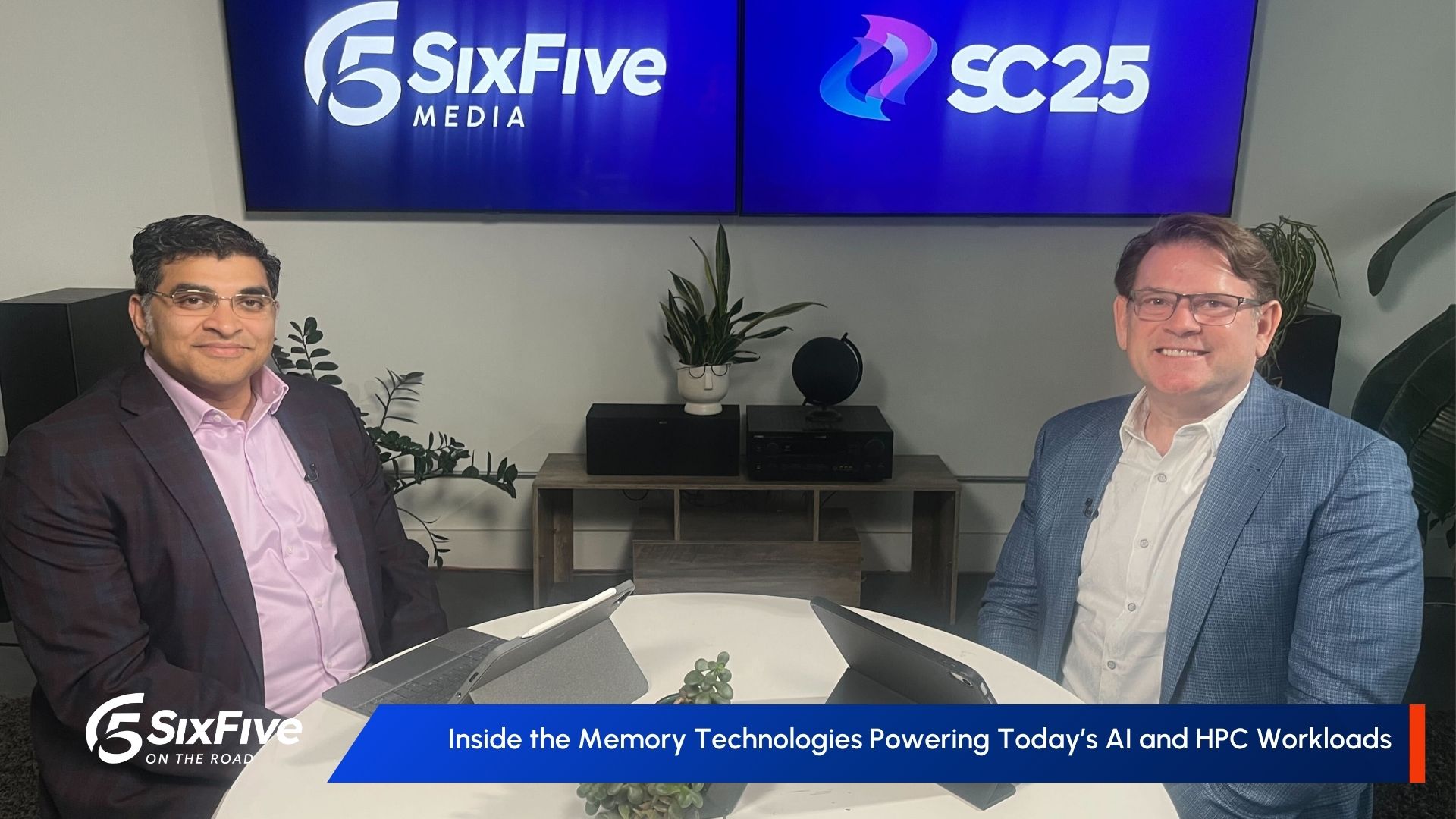
Inside the Memory Tech Powering Today’s AI and HPC Workloads – Six Five On The Road
Girish Cherussery, VP/GM AI Solutions at Micron, joins David Nicholson to explore the latest memory technologies powering AI and HPC, breaking down current bottlenecks, emerging architectures, and what data center leaders need to know now.

The View from Davos with Snowflake: From AI Ambition to Enterprise Impact
AI ambition is everywhere. Enterprise impact is not. From Davos, this session with Sridhar Ramaswamy, Patrick Moorhead, and Daniel Newman examines why data foundations, governance, and execution discipline now determine which organizations can turn AI into real business outcomes.
Other Categories
CYBERSECURITY

Threat Intelligence: Insights on Cybersecurity from Secureworks
Alex Rose from Secureworks joins Shira Rubinoff on the Cybersphere to share his insights on the critical role of threat intelligence in modern cybersecurity efforts, underscoring the importance of proactive, intelligence-driven defense mechanisms.
QUANTUM
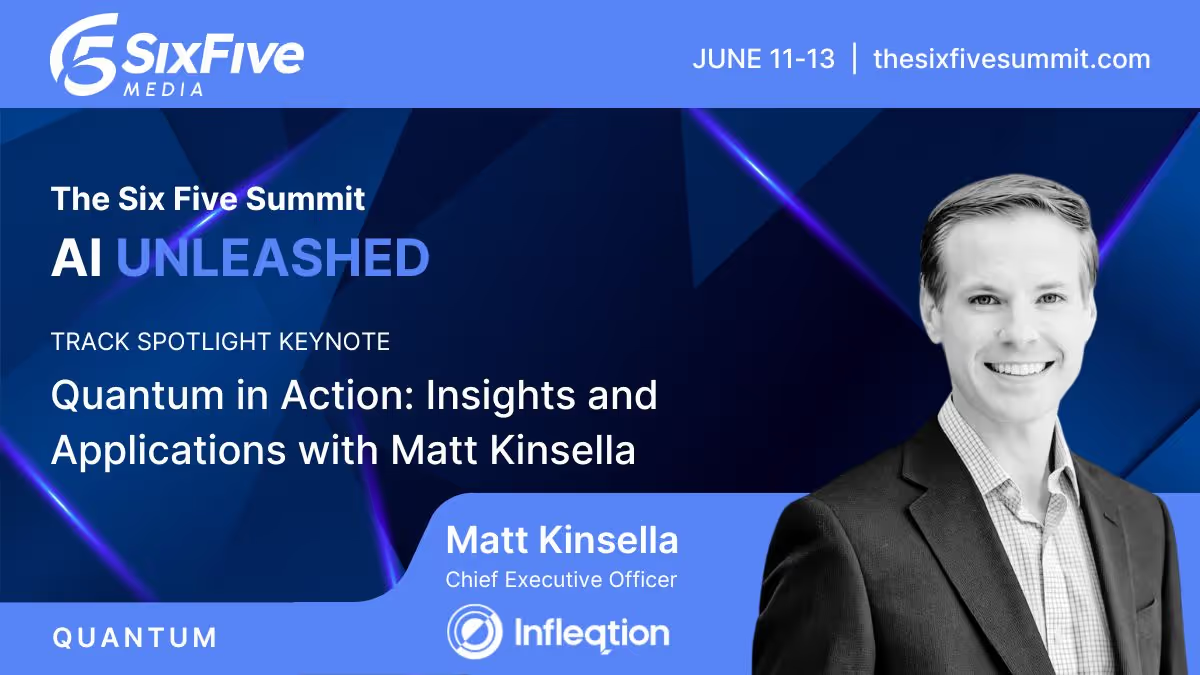
Quantum in Action: Insights and Applications with Matt Kinsella
Quantum is no longer a technology of the future; the quantum opportunity is here now. During this keynote conversation, Infleqtion CEO, Matt Kinsella will explore the latest quantum developments and how organizations can best leverage quantum to their advantage.
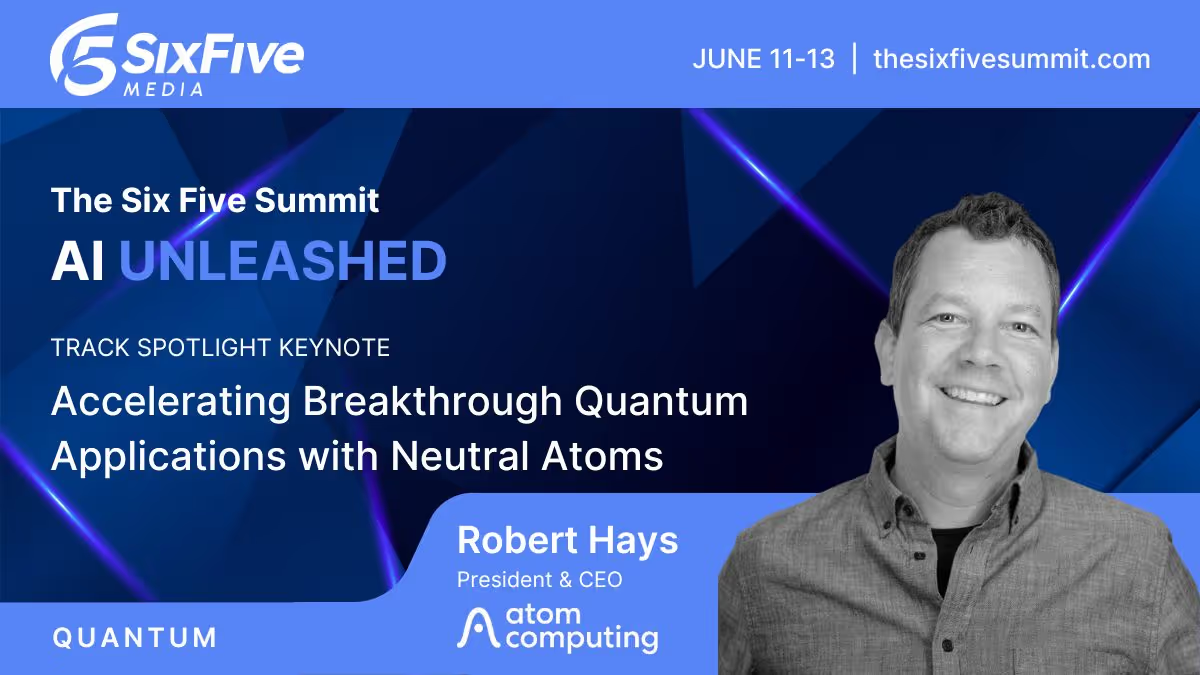
Accelerating Breakthrough Quantum Applications with Neutral Atoms
Our planet needs major breakthroughs for a more sustainable future and quantum computing promises to provide a path to new solutions in a variety of industry segments. This talk will explore what it takes for quantum computers to be able to solve these significant computational challenges, and will show that the timeline to addressing valuable applications may be sooner than previously thought.



